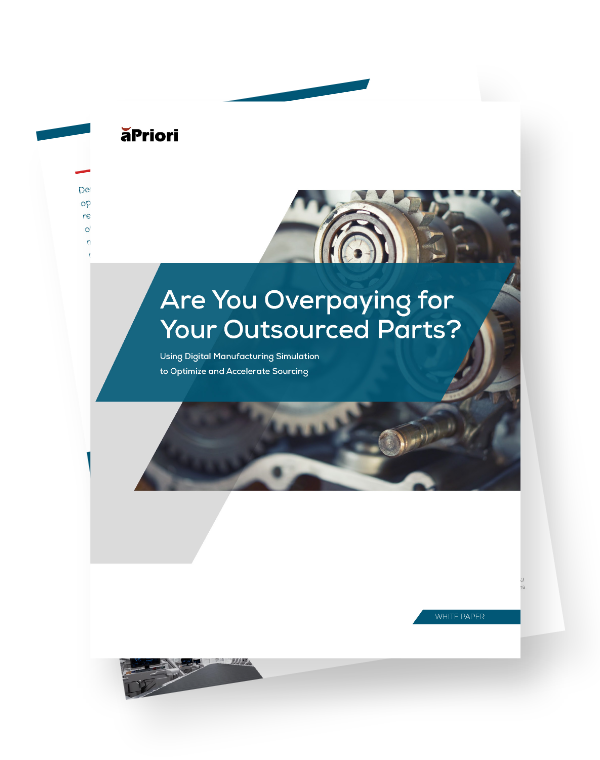How to Get the Lowest Price on Supplier Quotes
Sourcing professionals are faced with many challenges, the biggest of which is knowing how much parts are to cost. They are responsible for providing a quote at the most competitive price, without having much visibility into the true cost of the part. And because they are measured on how much business they win for their company, cost is arguably the most important part of their role.
The sourcing team must rely on historical quote data, spotty visibility into the supplier’s costs, and mammoth spreadsheets to provide a logical and reasonable quote for their customers. With the limited information the sourcing team has, they are often forced to make educated guesses.
Through experience in the field, sourcing professionals are able to navigate the difficult terrain of finding the best and most reasonable quote for their customers, but they often lack real actionable data to be used in negotiations.
How Can Sourcing Professionals Know if They Are Getting a “Good” Quote?
Even if your supplier has some transparency and provides your team with estimated run times or total overhead cost, how does your team know what to compare that cost to?
- Do they rely on historical data, which may or may not be relatable to this part?
- Is that historical part close enough to this current part to be considered an apples-to-apples comparison?
- Do they trust the supplier with the high-level pricing he is giving?
- Do they speak to a colleague who has had more experience with this type of commodity?
Without a product cost management solution, there is no real prescribed methodology to ensure you are getting the best quote for your parts. This means that today’s sourcing professionals are relying heavily on relationships, error-prone spreadsheets, and history.
Arm Your Sourcing Team With the Right Tools to Negotiate with Suppliers
What if your sourcing team had a way to understand what a part should cost based on an aggregated collection of hundreds of factories in the desired region? Not only will they have visibility into the should cost of the part, but they will also have leverage in the discussions with the supplier.
Instead of blindly being told that the part is made on a milling machine, what if the sourcing professional already knew that the part could be made on the 3-axis mill? Armed with this knowledge, she can ask the supplier how he is making the part, and she can also get to an even more granular level of detail by asking the supplier a question like:
“Why are you making the part on the 5-axis mill? Due to the geometry of the part, it could certainly be made on the 3-axis mill – which would result in a much lower cost than the 5.”
For the first time, this sourcing professional is going into the discussion with the supplier with leverage, and the ability to have an educated discussion with cold hard numbers and logic to challenge the supplier.
An effective product cost management solution takes the guesswork and uncertainty out of your sourcing team’s part costing responsibility. It can also be used as a platform that can help you roll up the costs across various projects and commodities, without the need for much manual intervention.
A repeatable solution ensures consistency in supplier quotes
Without a product cost management solution, if two members of the same sourcing team were to go to a supplier asking for a quote on the same set of parts, one would assume they would come out of the negotiations with the same outcome.
Not necessarily.
Since they do not have the same data or methodology backing up expectations for the cost of those parts, different pricing outcomes are likely. However, if the two team members were utilizing product cost management software, they would reap similar results from the supplier. The PCM solution provides visibility and reasoning to support their supplier negotiations.
Having a repeatable solution not only will ensure consistency, but will also ensure success in negotiations across all sourcing professionals within your organization.
Leverage Data, Logic, and Cold-Hard Numbers From a PCM Solution
Participate in informed and successful discussions with your suppliers. Drive down costs. Win more business.
A PCM solution will help you to gain this visibility and provide consistency across your organization to ensure you are delivering the best possible quotes to your customers. This quality and consistency will in turn help your organization to win more business. Not only short-term business but also long-term business as many of your customers will come to you first as they trust your pricing methodology above the rest of their suppliers.
Are You Overpaying for Your Outsourced Parts?
Take a look at a simple, effective methodology for identifying which parts are driving cost inefficiencies.







